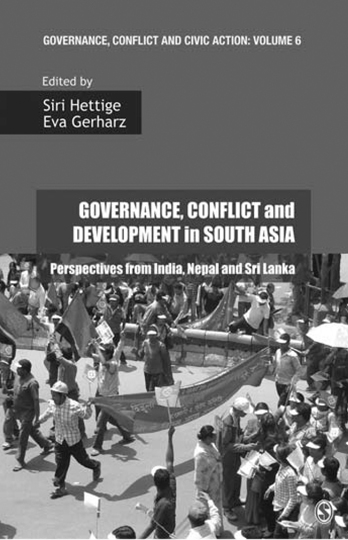Three essential elements of social experience, namely, governance, development and conflict, are intimately intertwined.Sometimes confusion arises because we are confronted with situations when apparently developed situations too lead to conflicts as was seen in the Khalistan movement in India’s Punjab province in the late seventies and early eighties, or what, has been happening in Kashmir. Punjab was one of the traditionally prosperous States of India, and so far as Kashmir is concerned, it is one the biggest recipients of central assistance. It is, therefore, not always simply that economic hardship alone leads to societal conflicts. The relationship is much more complex, and that is what the present book under review underscores.
Edited by Siri Hettige, a senior Sri Lankan sociologist, and Eva Gerharz, a German sociologist-cum-activist, the volume is a compilation of nine scholarly papers, besides the Introduction. The latter sums up the essence—the volume is aimed at examining ‘governance, development and conflict from both a conceptual and an empirical perspective [by paying] attention to particular configurations of governance and development that have shaped the recent history of South Asian states [by taking into account] the particular endogenous and exogenous circumstances in different countries’ (p. 1).

